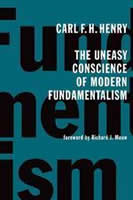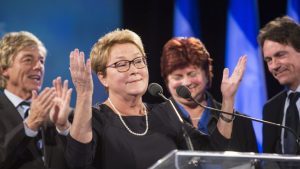Inevitably here at Le Blog I end up mixing politics and religion. My hope is that the mixture is not so much substantive, as it is illustrative. I think that the political realm is a wonderful place to witness and learn from human drama. When asking, “What is man that thou art mindful of him?” there seems to be no better place to turn for data than the world of politics. Witness the tragi-comedy of Pennsylvania’s Arlen Specter. He’s no longer just haunting Europe – I’ve just outed all of you grinning pinkos! – he’s leaving the GOP and moving across the isle to play nice with his new Democratic allies. (Ok, so they’ve stripped him of his seniority, but he still left the GOP.)
{youtube}zVRuNK43qFo{/youtube}
What makes this story such a dandy is the rare honesty that Specter showed when announcing his decision to switch parties. His state party was shrinking, and as it shrunk it was becoming more conservative, less tolerant of dissent and outlying positions, and more concerned with doctrinal purity than with winning elections. Specter’s polling showed that he had practically no chance of winning his own Republican primary due to his moderate stances and especially some recent votes in which he sided with the Democrats. So, rather than lose the primary, he switched parties. Yes, we heard the old line, “I’m not leaving the party, the party left me!” but it isn’t clear that any ideological shift had actually taken place. Specter doesn’t line up any more neatly with Democratic ideologues than he did with the Republican purists. There is just more tolerance for internal dissent among the Democrats right now, in large part because they are in charge. Noblesse oblige is so much easier to manage when you’re running the show. So it seems that the moderate middle has moved, shifted, or drifted Left. Is there an inevitable drift toward Liberalism. Are today’s moderates destined to be tomorrow’s Left?
And what does this have to do with our churches?
As a Liberal, one of the arguments in Lost in the Middle? and the soon to be published Found in the Middle! that I wrestle with the most is the notion that the far Left can be just as intolerant as the far Right. Anecdotal evidence abounds – listen to Act 3 about the mom who won’t allow her daughter to be “pro-life” – but the point is really driven home when we see what happens to moderate politicians who belong to either of the major parties when they “upset the base.” Until this last election, Democrats had spent several decades preventing moderate pro-life Democrats from speaking at national conventions. So neither end of the spectrum holds the trump card when it comes to intolerance for moderates who don’t tow the party line.
I promise, I’ll bring this back around to our congregations and denominations in a moment, but let’s continue with the political examples for just a bit because they can really teach us some things.
JFK is frequently evoked in both Liberal and Conservative political circles. Somehow he functions a bit like Lincoln or Washington and lives on as a kind of semi-mythical saint whose memory can be called to mind at any time. Democrats never tire of the Camelot imagery, the sense of destiny, and Kennedy’s undeniable progressive streak. Republicans, on the other hand, seem ever ready to tout JFK’s national defense credentials and claim that “were he alive today Kennedy would be a Republican.” They are of course both right. For his time Kennedy was a progressive Liberal, meaning that he was relatively tolerant of new ideas and change. But many of his positions – even those that were considered radical at the time – would locate him in the middle of today’s GOP. The point worth noting is that Liberal and Conservative, Right and Left are always context dependent. Conservatives wish to conserve the traditional institutions, while Liberals are more open to changing them. Conservatives fought against women’s suffrage, African-American civil rights, and immigration from predominantly Roman Catholic countries. Today, the more conservative of the two major parties is headed by an African-American, had a female Vice-Presidential nominee, and counts among its staunchest supporters many pro-life Roman Catholics. Positions change because contexts change. Yesterday’s Liberal platform is the new traditionalism, vaunted and defended by next century’s conservatives. Were this not the case, the Tories and not the GOP would be the minority in both houses of the U.S. Congress.
Reactionary traditionalists often enjoy the irony of pointing out that the truly tolerant must also tolerate the intolerant. True enough, and when they decide to stand firmly by their principles, Liberal groups like the ACLU defend the speech of the KKK with as much vigor as they defend the rights of Environmentalists. When Liberals fail to stand on principle, they too can become Conservative – I’m telling you, you have to listen to this story! They may argue for or defend positions that are Liberal by today’s standards, but insofar as they defend an orthodoxy against criticism, refuse to tolerate dissent, and fight for the Liberal status quo, they become traditionalist conservatives – hoping to conserve recently established traditions.
William F. Buckley Jr., perhaps the leading Conservative intellectual of the later half of the twentieth century, once described the mission of his National Review as to stand “athwart history, yelling Stop, at a time when no one is inclined to do so, or to have much patience with those who so urge it.” Read the original Mission Statement. Buckley understood that the basic conservative impulse was to resist change. In their purest forms, Liberalism and Conservatism are about change and maintenance respectively. True, when Liberals are in power Conservatives take up the “change” banner and Liberals suggest that we should “stay the course,” but at bottom the Conservative impulse is to preserve traditions, while Liberals encourage the freedom to change. So what about our Liberal and Conservative congregations?
I think Specter’s case can tell us something. Specter moved in an odd direction. He went from the more conservative GOP to the more Liberal Democratic Party. This is a bit odd, since most of us would expect that an individual Senator would become more Conservative as time passes, or at least Conservative relative to the dominant political narrative. But it seems that in Specter’s case something else is afoot. Specter rose to the Senate when Reagan was elected President in 1980. Having once been a Democrat, he became a Republican when he first tried to break into politics. It helps to remember that Specter arrived on the national scene at one of those moments in our history when the more conservative party was out of power, and so was waving the “change” banner. Reagan’s “conservative revolution” (note please that this now commonplace phrase was once understood as almost a contradiction in terms) swept many moderate Republicans into office in the former actor’s wake. Under these circumstances Specter the moderate could plausibly stand as a Republican, as someone moderately tolerant of both change and tradition. However, as time passed and the GOP became the traditionalist party once more, Specter began to stand out as a moderate. His tolerance of change and compromise became one of his defining characteristics, and thus marked him in the eyes of many as a disloyal opportunist.
I don’t know Specter, and I haven’t followed his career closely, but let us at least consider the possibility that he is a genuine Liberal, NOT in the sense that he agrees with all of the dogmas of today’s Liberal Orthodoxy, but RATHER in the deeper sense of being a man who is genuinely tolerant of diversity of opinion, of change, of dissent, and of change and tradition. Today, such a person is usually called a moderate. (And sure, he may just be an opportunist.)
Ok, I promised I’d bring it back to our congregations, so here goes.
If “Liberal Evangelical” strikes us as something of a contradiction it is likely due to the fact that we think of Liberal and Evangelical as marking out doctrinal positions, much in the same manner as our political discourse sometimes assumes that Conservative positions and Liberal positions are permanent boundary markers on the political landscape. But even the briefest glance at a responsible history of Christian Liberalism or Christian Evangelicalism warns us that this is not the case. Many of the deepest convictions help by our Evangelical forbearers have been left behind (I haven’t heard a good sermon on predestination in a while.) while new Evangelical convictions have arisen in many quarters (Would the Wesley brothers have felt the need to stand against Socialism?) The same has happened with Liberals as well. Where then is the continuity? Why do we at LiberalEvangelical.org insist on reclaiming our Evangelical and Liberal heritage? Why are we working to rehabilitate the term “moderate?”
We see in these terms and the traditions they represent, a set of ideas that span several contexts and transcend transient political and doctrinal positions. In Liberalism we see a tradition of openness to change, dissent, and difference. Yes, sometimes Liberals ossify and settle into intellectual and ethical ruts. But the overarching value of the Liberal ideal remains even when Liberals themselves lose the ideal. In Evangelicalism we see a tradition of placing Jesus and his Gospel at the center of our lives. Of course there have been times too numerous to count when Evangelicals have allowed other ideals to encroach upon the center. Biblicism, racism, fundamentalism, Americanism, and capitalism have all wheedled their way into far too many Evangelical hearts, minds, and sermons. But even as Evangelicals sometimes lose their way, the Evangelical ideal of putting Jesus front and center remains. In moderation we see a tradition of tolerance, humility, and love. We think that all three are well worth preserving. We value both tradition and change. We love our Bibles, our hymns, our churches, and our denominations, but we also know that any of these things can become idols if we let them. So we humble ourselves and eschew the easy road of doctrinal purity for the hard road of messy moderation.
In other words, we think that moderate Christians of the Liberal and Evangelical sort ought to recognize that today’s doctrinal formulations and certainties may end up on tomorrow’s trash heap. Political fads change. Doctrines change. Churches change. People change. Because of this, we do not demand ideological purity and we do not demand of those in the pews next to us that they agree with us in every detail. The details are far too ephemeral for us to put our faith in. We tolerate difference – we may even try to embrace it – because we know that change is coming. And we know that we may be the ones that have to change! We hold on to Jesus as our source of continuity. We hold on to our Liberal and Evangelical heritage, not because we can look back and find a list of doctrines with which we can agree, but because we can see in our Liberal and Evangelical forebears fellow moderates who tolerated dissent and diversity out of Christian humility. Today’s theological conservative can look back at Wesley and Fosdick and Graham and claim them as champions – “Were they alive today, they’d be one of us!” If you look only at their doctrinal formulations, then that is likely true. But if you look at the spirit with which they approached others, and especially those with whom they disagreed, than a much more moderate picture emerges.
Insofar as change is inevitable, a drift toward Liberalism is inevitable. But in our politics and our pews we can either be swept up in the currents of change or we can act with moderation and intention. We can choose to change in constructive and humane ways, or we can wait for the judgment of history to condemn our stubborn refusals to accept correction.
In parting I say, good luck to you Senator Specter. I do not have the capacity to plumb your motivations and see whether you are a genuine moderate or a Machiavellian, but at the very least I hope that you’ve shown that it remains possible for moderates to contribute to our national discourse. If a national politician can admit that he reads the polls, then we all have the capacity of genuine change.



